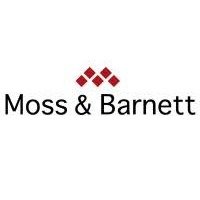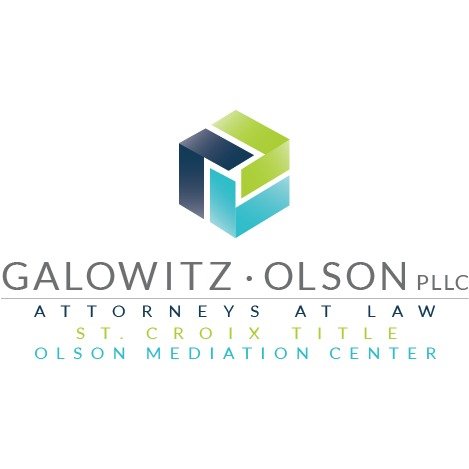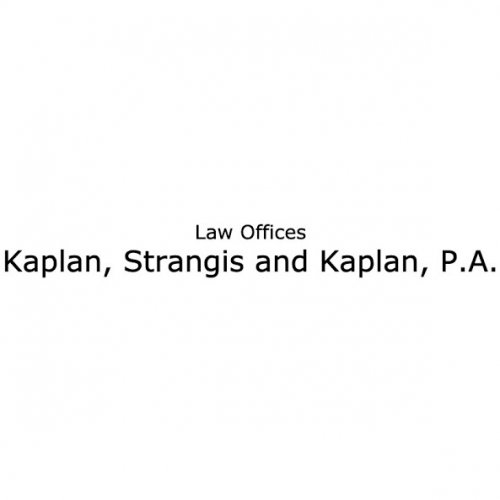Best Financial Services Regulation Lawyers in Minnesota
Share your needs with us, get contacted by law firms.
Free. Takes 2 min.
Or refine your search by selecting a city:
List of the best lawyers in Minnesota, United States
About Financial Services Regulation Law in Minnesota, United States
Financial services regulation in Minnesota refers to the laws, rules, and governmental oversight that apply to financial activities, institutions, and professionals. This includes the regulation of banks, credit unions, mortgage lenders, investment advisors, insurance companies, and other businesses that handle financial transactions or products. The objective of these regulations is to ensure honesty and transparency, prevent fraud, protect consumers, and maintain the stability of the financial system within the state.
Why You May Need a Lawyer
Navigating financial services regulations can be complicated for individuals and businesses alike. Legal assistance is often needed in situations involving:
- Starting or expanding a financial services company and ensuring compliance with licensing and registration requirements
- Responding to investigations, audits, or enforcement actions by state or federal agencies
- Drafting and interpreting contracts related to financial transactions, such as loans, investments, or insurance policies
- Defending against allegations of fraud, unfair practices, or consumer complaints
- Assisting with mergers, acquisitions, or restructuring of financial institutions
- Understanding requirements for cybersecurity and the protection of sensitive consumer data
- Managing disputes over fees, terms, and conditions in financial agreements
Because financial regulations are complex and subject to frequent changes, consulting with a lawyer can help avoid costly mistakes and ensure compliance with current laws.
Local Laws Overview
Financial services in Minnesota are regulated at both the state and federal level. Key state agencies include the Minnesota Department of Commerce and the Minnesota Attorney General’s office. Important local considerations include:
- Licensing Requirements: Many financial services providers (such as mortgage originators, lenders, brokers, and insurance agents) must obtain state licenses and keep them updated.
- Consumer Protection Laws: Minnesota has specific laws to protect residents from predatory lending and unfair or deceptive practices, including the Minnesota Consumer Fraud Act and the Uniform Deceptive Trade Practices Act.
- Privacy and Data Security: Financial institutions must follow strict rules for safeguarding consumer information, in compliance with both state and federal laws.
- Interest Rate and Fee Limits: The state imposes restrictions on what financial institutions can charge for certain loans and services, especially regarding payday lending and high-interest loans.
- Banking and Credit Union Oversight: State-chartered banks and credit unions are supervised by the Minnesota Department of Commerce, which reviews safety, soundness, and fair lending practices.
Navigating these state-specific rules is critical for financial service providers and consumers alike to ensure compliance and protect their rights.
Frequently Asked Questions
What kinds of financial institutions are regulated in Minnesota?
Minnesota regulates banks, credit unions, mortgage companies, payday lenders, brokers, insurance agents, investment advisors, and check cashers, among others.
Do I need a license to offer loans or credit services in Minnesota?
Most lending activities, including payday loans and mortgage services, require a valid license from the Minnesota Department of Commerce.
Are there limits on interest rates in Minnesota?
Yes, Minnesota law places caps on the interest rates and fees that lenders can charge, especially on consumer loans and payday advances.
What consumer protection laws apply to financial services?
Key consumer protection laws include the Minnesota Consumer Fraud Act and the Uniform Deceptive Trade Practices Act, which prohibit fraudulent or deceptive practices.
What agency oversees banks and financial institutions in Minnesota?
The Minnesota Department of Commerce oversees the regulation and supervision of state-chartered banks, credit unions, and other financial service providers.
What should I do if I have a complaint about a financial institution?
You can file a complaint with the Minnesota Department of Commerce or the Minnesota Attorney General’s office. In some cases, you may want to consult a lawyer about your specific situation.
Are there special rules for online or digital financial services?
Yes, digital and online financial services must comply with state laws on licensing, consumer disclosures, data privacy, and cybersecurity, in addition to federal regulations.
How are investment advisors and securities firms regulated?
They must register with the Minnesota Department of Commerce and comply with both state and federal securities laws designed to protect investors.
Does Minnesota have laws against predatory lending?
Minnesota has enacted specific statutes to prohibit predatory lending and unfair mortgage practices, including statutory limits on fees and mandatory disclosures.
How often do financial services laws change in Minnesota?
Laws and regulations can change frequently due to new legislation and rulemaking, so it is important for providers and consumers to stay informed or seek legal guidance regularly.
Additional Resources
If you need more information about financial services regulation in Minnesota, consider consulting:
- The Minnesota Department of Commerce - the main regulatory body for banking, lending, insurance, and securities
- The Minnesota Attorney General’s Office - for consumer protection resources and assistance with complaints
- The Financial Industry Regulatory Authority (FINRA) - for securities and broker-dealer information
- The Consumer Financial Protection Bureau (CFPB) - for federal consumer protection issues and complaint resolution
- The Minnesota State Bar Association - which can help you find qualified financial services attorneys
Next Steps
If you believe you need legal assistance with a financial services regulation matter in Minnesota, start by identifying your specific issue (such as licensing, compliance, disputes, or consumer complaints). Gather all relevant documents and correspondence. Consider contacting a lawyer who specializes in financial services regulation for an initial consultation to discuss your options and next steps. You can also reach out to the Minnesota Department of Commerce or the Attorney General’s office for information or to file a complaint if you suspect wrongdoing. Taking prompt action can help protect your interests and ensure compliance with Minnesota’s financial laws.
Lawzana helps you find the best lawyers and law firms in Minnesota through a curated and pre-screened list of qualified legal professionals. Our platform offers rankings and detailed profiles of attorneys and law firms, allowing you to compare based on practice areas, including Financial Services Regulation, experience, and client feedback.
Each profile includes a description of the firm's areas of practice, client reviews, team members and partners, year of establishment, spoken languages, office locations, contact information, social media presence, and any published articles or resources. Most firms on our platform speak English and are experienced in both local and international legal matters.
Get a quote from top-rated law firms in Minnesota, United States — quickly, securely, and without unnecessary hassle.
Disclaimer:
The information provided on this page is for general informational purposes only and does not constitute legal advice. While we strive to ensure the accuracy and relevance of the content, legal information may change over time, and interpretations of the law can vary. You should always consult with a qualified legal professional for advice specific to your situation.
We disclaim all liability for actions taken or not taken based on the content of this page. If you believe any information is incorrect or outdated, please contact us, and we will review and update it where appropriate.
Browse financial services regulation law firms by city in Minnesota
Refine your search by selecting a city.











